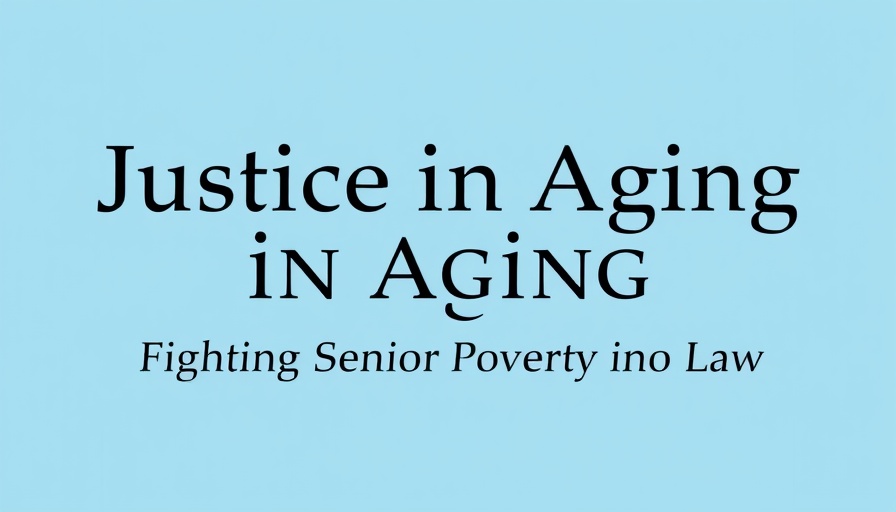
Medi-Cal: A Lifeline for Older Californians
Approximately 2.3 million older adults and individuals with disabilities in California rely on Medi-Cal, the state's version of Medicaid. This program is essential, not just for its health benefits but also for providing long-term care solutions that many Californians cannot afford otherwise. With long-term care costs averaging $147,000 annually for nursing homes and around $83,000 for at-home care, Medi-Cal serves as a financial lifeline, supporting those who need help with daily activities and substantial healthcare needs.
Understanding the Stakes of Proposed Cuts
As federal policymakers discuss “reforms” to Medicaid, the consequences for Medi-Cal funding cannot be overstated. Initiatives such as block grants could severely cap federal funding, forcing California to shrink its Medi-Cal program over time. Such proposals don’t just threaten the existence of foundational healthcare services but also put at risk crucial benefits for seniors, like dental and vision care, that Medicare doesn’t cover. By destabilizing this system, Medi-Cal's role as a safety net for low-income older adults would be significantly undermined.
Insight into Federal-Medi-Cal Relationship
Medi-Cal operates under a state-federal partnership that allows California to receive essential financial support from the federal government. However, as proposed cuts loom, it's essential to realize that these changes could lead to drastic shifts in who receives care and the quality of that care. With increasing costs of living and a growing seniors population, a reduction in funding would only exacerbate existing healthcare disparities among California’s older demographic.
The Real Affects of Federal Funding Cuts
Proposed funding cuts threaten not only the financial stability of the Medi-Cal program but also the actual delivery of care for older adults across California. Without adequate federal support, seniors could see their home and community-based services significantly reduced, with direct consequences on their health. Many seniors depend on Medi-Cal not only for traditional medical care but for essential support services that allow them to live independently.
Future Implications: What’s at Stake for Older Californians
Looking ahead, the potential loss of Medi-Cal funding could lead to restrictions on eligibility, making it harder for many economically vulnerable seniors to maintain their coverage. Furthermore, with national discussions around healthcare evolving, the implications are profound: fewer services available, increased financial burdens on both state budgets and families, and a rise in healthcare costs that older individuals simply won't be able to afford. Those at risk of disenrollment or loss of services are often among the most vulnerable members of society.
Emotional and Human Interest Perspective
Imagine being an older adult who has navigated a lifetime of uncertainties just to find security in a healthcare system that promises stability. Proposed cuts to Medi-Cal can evoke fear and anxiety for millions. This isn’t mere bureaucracy; it’s about the well-being of friends, family, and neighbors. Many will face difficult decisions, like whether to forgo crucial medical appointments, limit access to necessary medications, or struggle to find affordable long-term care.
Insights from the Recent Reports
Reports indicate significant reliance on Medi-Cal, with over 1.75 million older adults utilizing it to compensate for Medicare expenses. Experts warn that any reduction in funding could not only strip essential services away but also mean further cuts to providers that are already stretched thin. Advocating for the protection of Medi-Cal is paramount; the voices of older adults must resonate loudly in discussions of governmental budget priorities.
Call to Action: Advocating for Medi-Cal Protection
It is vital for communities to unite to advocate for the preservation of Medi-Cal funding and protections. As the conversation around healthcare reforms continues, participation in local advocacy efforts can be instrumental. If you or someone you know is impacted by potential cuts, now is the time to reach out to local officials and make your voice heard.
 Add Row
Add Row  Add
Add 


 Add Row
Add Row  Add
Add 

Write A Comment